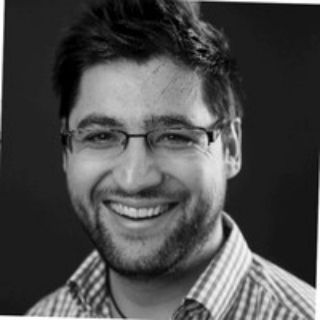Managing daily medication changes for chronic heart failure patients requires regular hospital-based, and invasive assessments of hemodynamic parameters such as filling pressure, blood flow, and systemic vascular resistance. Our goal is to develop implantable sensors that enable these assessments remotely in patients’ homes, facilitating continuous monitoring and management. This innovation leverages advanced shape-memory metal technology and novel sensor and antenna designs, which can be deployed through thin catheters into large blood vessels or directly within the heart’s chambers.

Friedrich Wetterling,
Trinity College Dublin, Ireland
The seminar’s presentation will explore the need for remote monitoring in congestive heart failure and review existing sensor solutions. While many of these solutions are evaluated primarily on clinical outcomes, I will focus on the reported accuracy and precision of these devices from small trials and real-world databases. Additionally, we will discuss existing IEEE standards for arterial pressure measurements and the potential for new standards to support the growing field of implantable sensors. While a major focus will be on the electronic circuitry of those sensors and systems, I will present how those sensors can inform timely medical treatment adjustments and potentially reduce premature mortality and improve quality of life.
Friedrich Wetterling, is an assistant professor for biomedical circuits and systems at Trinity College Dublin, Ireland where he leads the Medical Circuits and Systems (MediCAS) Lab, a research group anchored at the Department of Electronic and Electrical Engineering within the School of Engineering. He led the radio-frequency and system development of an innovative implantable device for congestive heart failure monitoring at FIRE1 (2016-2024).
Professor Wetterling was a Marie-Curie Research Fellow at Trinity College where he developed a novel monitoring method for cardiac function using inductively coupled resonators, i.e. radio-frequency cardiography (2013-2015). Prior to that he led the Magnetic Resonance Methods and Imaging group at the Chair for Computer Assisted Clinical Medicine, Heidelberg University (2009-2012) where his team captured the first whole body tomographic image set solely based upon the local sodium concentration in a human.
In 2010, he was awarded the Siemens Prize for establishing Sodium-23 Magnetic Resonance Imaging for stroke tissue viability assessment at the annual meeting of the German Medical Physics Association (DGMP) in Freiburg, Germany. He is a member of the International Society for Magnetic Resonance in Medicine (ISMRM), and the Institute of Electrical and Electronics Engineers (IEEE). He has authored and co-authored over 40 publications in peer- reviewed scientific journals and conferences papers. And he has authored more than 30 patent applications.